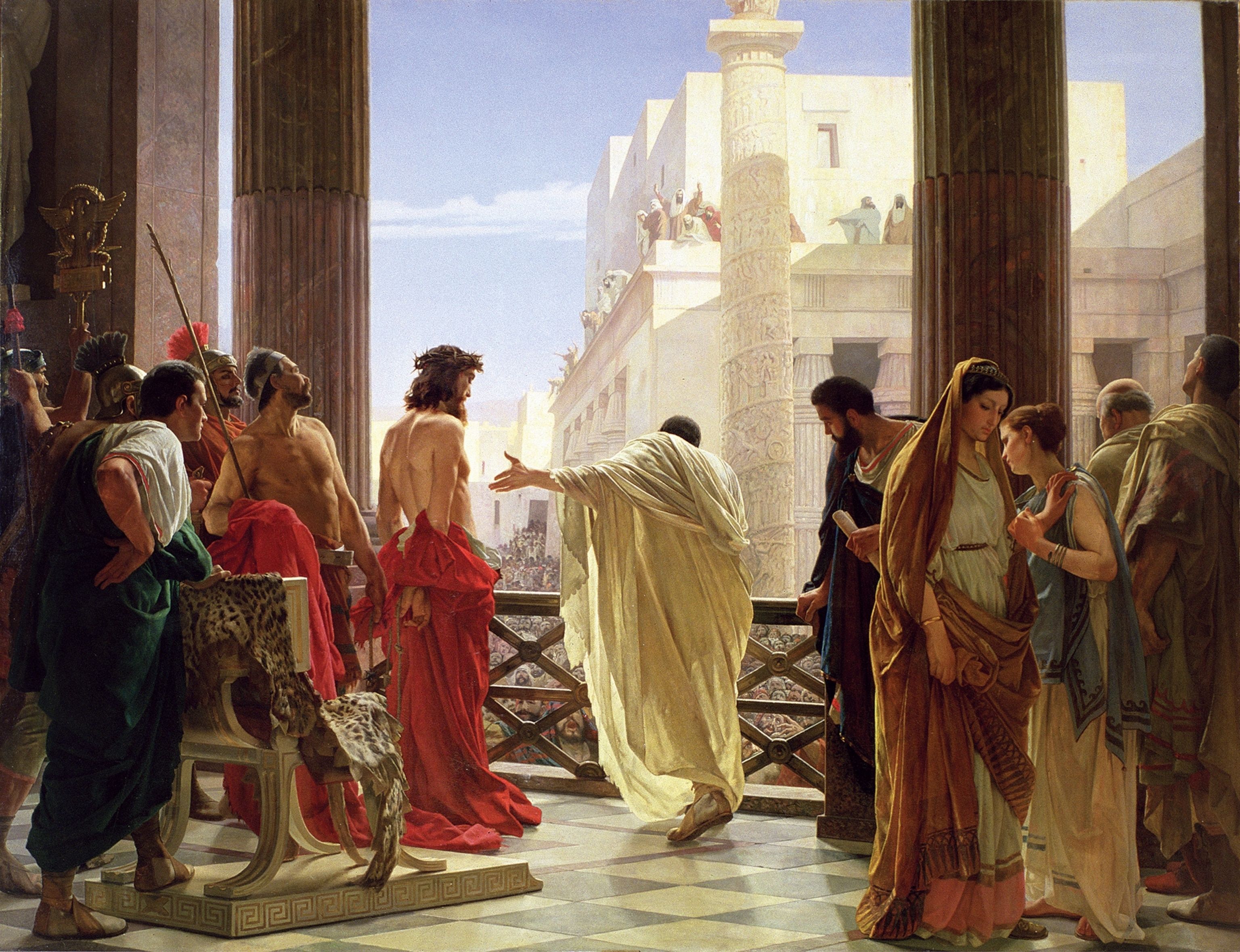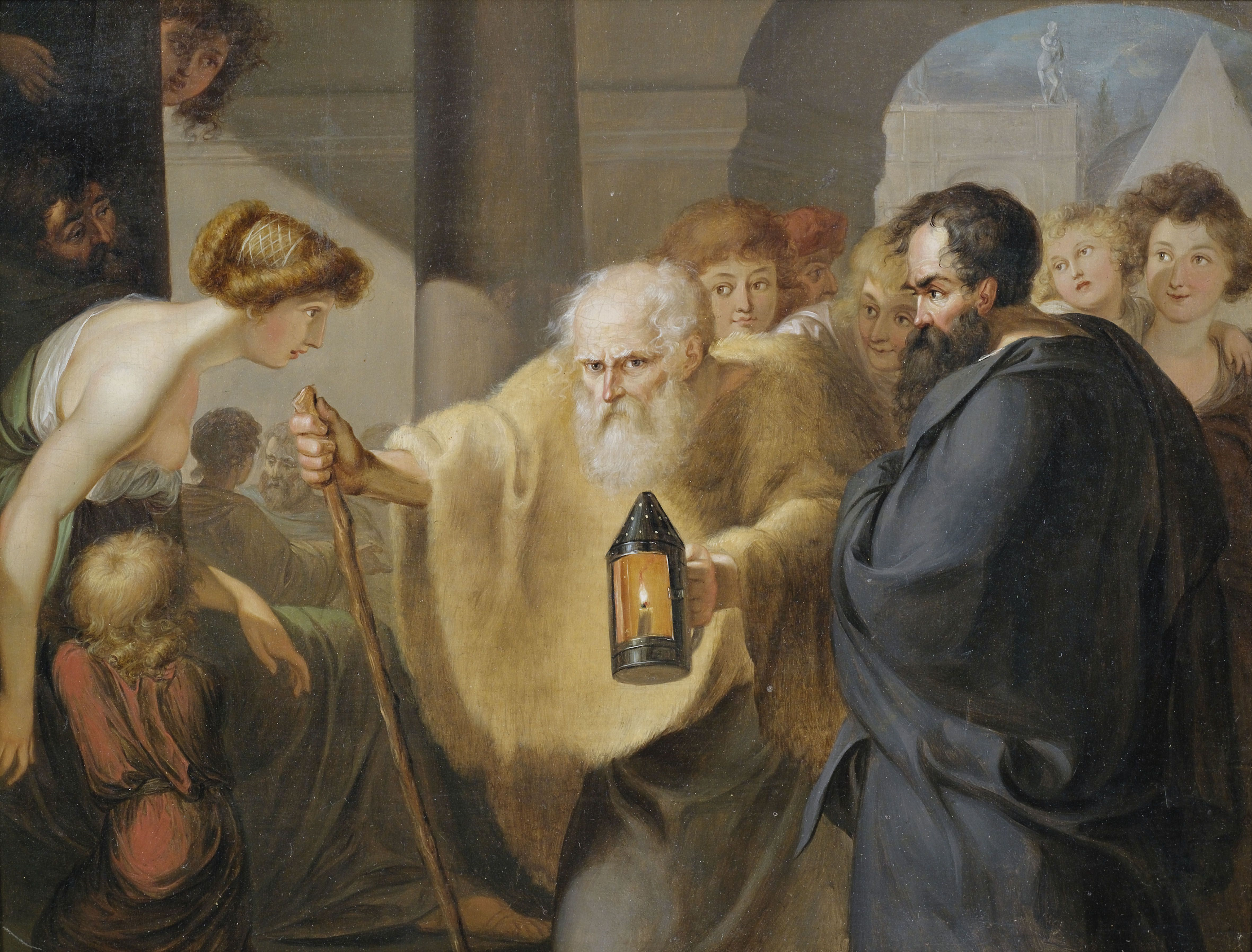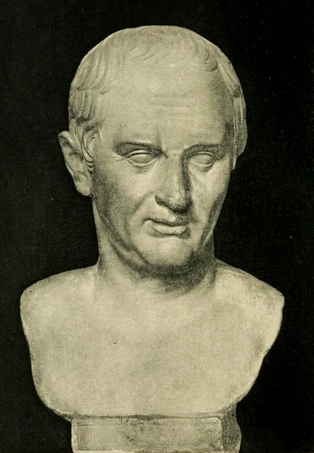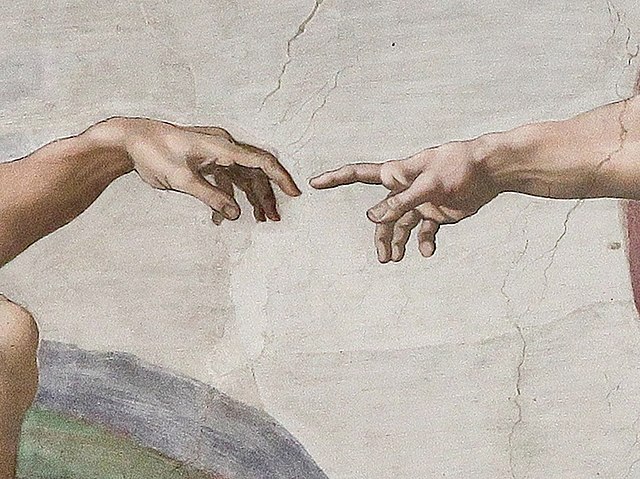DIOGENES WAS A STRANGE MAN.
He rejected all social status, comfort, and prestige. He lived with dogs in the streets. His only posession was a wooden bowl - until he saw a boy drinking from his hands, and then he called himself a fool for carrying so much "superfluous baggage". He insulted Alexander the Great to his face. But he was no monastic: he would drink and relieve himself in public.
He was said to wander the streets with a lamp in broad daylight. When asked what he was doing, he would give the reply:
"I AM LOOKING FOR A MAN."
Diogenes would mock Plato, who was (and is) more respected. Plato had his head in the clouds, in his "theory of forms", which holds that the world of abstract ideas is more real than the visible world. Everything in this world, Plato said, is but a shadow of the greater reality (the allegory of the cave).
Diogenes thought this was absurd. There is a legend that Plato defined a man as a "featherless biped", and so Diogenes plucked a chicken and threw it into Plato's Academy, announcing:
"BEHOLD, PLATO'S MAN."
So Diogenes thinks that Plato could not define what a man was. But wasn't he being a little hypocritical? After all, Diogenes couldn't even find a man while looking in broad daylight.
Even Diogenes is referencing an abstract idea. In this case, an ideal. He is looking for a true man.
"Existence precedes essence" is a motto first coined by Sartre which defines the main idea of existentialist philosophy.
I am not educated enough to give the technical meaning of the phrase. The basic idea is a criticism of classical philosophy - Greeks such as Plato and Aristotle asked thing like, What is man? What is his essence? What makes man, man? Existentialists such as Sartre thought that the more fundamental thing to grapple with is simply that man exists, and questioned whether man even had a defining "nature" at all.
It is quite apparent what the purpose ojbects are, just by looking at them. A hammer is meant for nailing, a chair is meant for sitting. The more effective the thing can do its task, the better it is. And the qualities of the thing determine how effective it is. Steel hammer > paper hammer. Because good hammers drive nails, and paper will not drive nails.
But the man is something that seems to simply be, to exist with no specific purpose. Roughly, the two groups that give answers are religions and gurus (spiritual or secular). But do they give good answers? Does anyone really trust institutions to tell us what the meaning of our life is? And does anyone truly trust the origin of every "spiritual" thought or feeling that occurs to our animal brain? We seem to have just come out of the mud, come out of apes, and now we're just an accidental mind attached to a 7 billion year old selfish gene. Is there anything more? Anything we can trust?
This, of course, is existential dread, named after the existentialists. It is the disposition of the modern world.
Consider: the existence of the hammer and the essence of the hammer are the same thing. The hammer is made for hitting, so its form is conducive to hitting. If something is created by a mind, then what it is for and what it is are the same thing. Its existence and essence are one. Therefore, if man was created by a mind, then our qualiites exist for another end, the end which the mind conceived. And if man was not created, then he has no objective end, his qualities were simply gained by what happened to be useful for his ancestors to reproduce.
The fact of a creator is demonstrated by the fact that there is anything, that there is distinction. The question "why is there something rather than nothing?" can only be answered if something had to be. It seems obvious that nothing around us has to be, since it's constantly changing into different forms of being. The only things that seem to exist out of necessity are abstract, like logical proofs, and numbers. But logical proofs and numbers do not create or act, they simply are. Beings create. Only a self-existent being, can answer the question of why something exists rather than nothing. Existence - that which is and never was not- is that being, that which we call God. "To be God is to be being."
God is, Being Himself.
If we hold that a creator exists, then we also hold that the end of man can be deduced by his qualities. The best resource I know that lists these qualities is On Duties, by the great Roman statesman Marcus Tullius Cicero. It was once considered an essential work of philosophy, so much so that it was the first book printed on the Gutenberg press after the Bible. Here are the qualities he says are unique to man:
1) Reason and speech, which enable the social instinct.
The most marked difference between man and beast is this: the beast... is moved by the senses and with very little perception of past or future... while man—because he is endowed with reason... understands the relation of cause to effect... and surveys the course of his whole life and makes the necessary preparations for its conduct.
Nature likewise by the power of reason associates man with man in the common bonds of speech and life; she implants in him... a strangely tender love for his offspring... She further dictates... the effort on man's part to provide a store of things that minister to his comforts and wants—and not for himself alone, but for his wife and children and the others whom he holds dear and for whom he ought to provide."
2) Desire for truth, and 3) desire for independence.
"Above all, the search after truth and its eager pursuit are peculiar to man. And so, when we have leisure from the demands of business cares, we are eager to see, to hear, to learn something new, and we esteem a desire to know the secrets or wonders of creation as indispensable to a happy life. Thus we come to understand that what is true, simple, and genuine appeals most strongly to a man's nature. To this passion for discovering truth there is added a hungering, as it were, for independence, so that a mind well-moulded by Nature is unwilling to be subject to anybody save one who gives rules of conduct or is a teacher of truth or who, for the general good, rules according to justice and law. From this attitude come greatness of soul and a sense of superiority to worldly conditions."
4) A sense of order and beauty.
"Man is the only animal that has a feeling for order, for propriety, for moderation in word and deed. And so no other animal has a sense of beauty, loveliness, harmony in the visible world; and Nature and Reason, extending the analogy of this from the world of sense to the world of spirit, find that beauty, consistency, order are far more to be maintained in thought and deed, and the same Nature and Reason are careful to do nothing in an improper or unmanly fashion."
And so Cicero concludes the following:
"All that is morally right rises from some one of four sources. It is concerned with either
- The full perception and intelligent development of the true;
- The conservation of organized society, with rendering to every man his due, and with the faithful discharge of obligations assumed.
- The greatness and strength of a noble and invincible spirit.
- The orderliness and moderation of everything that is said and done."
There is something here, but not enough to deduce a greater conclusion as to what man is supposed to pursue, concretely. Cicero delves into that question in the rest of the book, but doesn't truly reach a conclusion that answers, What's it all for? - Yes, all these things may be useful, but what are they useful for? Perhaps it's because we are thinking in terms that are too abstract.
Consider: it's obvious that the creator did not create individual people. That is, He created the species of man, which individual men are born into. And before that, He apparently created the whole universe, and then generated a multiplicity of species and then seperated the form of man in body and mind. You were not made from dust, you were born into a family and society. Could it be that the individual man does not have a purpose in himself, but only relative to the purpose of the species? A cell in a body only has a purpose relative to the entire body. Could it be the Creator told the first humans what the mission of the species was, but they botched it, and now the rest of us are stuck trying to figure it out again?
So man, who here seems principal alone,
Perhaps acts second to some sphere unknown,
Touches some wheel, or verges to some goal;
'Tis but a part we see, and not a whole.
-Alexander Pope
Doesn't it seem likely that if a rational actor-creator made another rational actor for an intelligible goal, he would tell the actor what the goal was? Why would you make a being to know and act and then refuse it the knowledge required to act?
Indeed, I have been describing "my" philosophy: That the Creator made mankind, as a unified whole, for a great purpose. He created Adam and Eve, and commanded them to multiply, that as a species we might all serve in that Garden. As individuals, yes, but also as the culmination of his separation by kind. That we, the rational animal, might be the noblest beast, the steward and representative of material creation before God.
You are not simply you, You are, ________, born in ________ and raised in__________, born to a man, ________, and a woman, _________ . You are, by virtue of being born in this age: a son of Adam, a son of Cain, a son of Noah. A child of Abraham, a witness to Israel, a hearer of Moses, a servant of David, a seeker of Solomon.
And some become a child of God, a witness to the Church, a hearer of the Apostles, a servant to Christ, a seeker of Truth.
The ancients recorded their ancestors in introductions, to emphasize this significance of the species. Indeed, the gospels trace the lineage of Christ all the way back to Adam.
Diogenes could not find a man on the earth. He could not find anybody who really knew what they were made for. The best anyone could deduce is what Cicero deduced. We must create, but what? I must act, but to what end? Diogenes didn't know what a man was: he just knew that everyone around wasn't one. That everyone around didn't know what they were really for. He never found the true man as long as he lived. And no one else would for 400 years.

"THE REASON I WAS BORN AND CAME INTO THE WORLD IS TO TESTIFY TO THE TRUTH"



